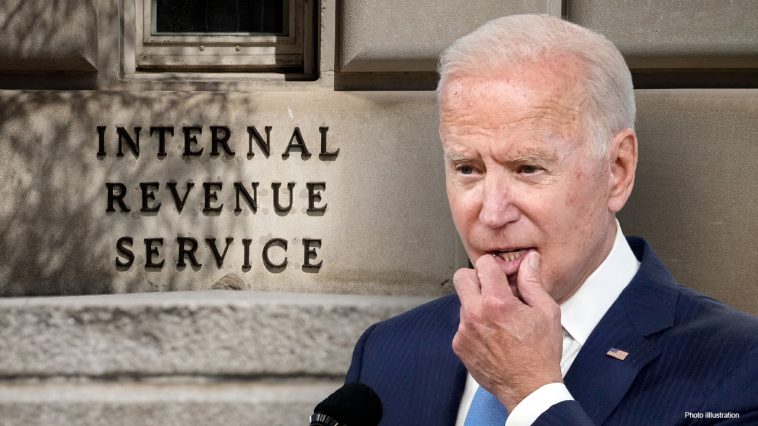LISTEN HERE:
The Internal Revenue Service (IRS) recently proclaimed that it will postpone the imposition of a new tax rule which would have affected American users of third-party payment apps such as Venmo or PayPal.
These users, whose online earnings would have surpassed $600 in a year, are granted a reprieve thanks to the IRS’s decision.
Originally accepted as part of the American Rescue Plan by Democrats in March 2021, this policy would have compelled such platforms to supply both the IRS and users with Form 1099-K in cases of annual transactions crossing the $600 mark. Now, the IRS has resolved to regard 2023 as a ‘transition year’.
Thus, the requirement of Form 1099-K has been raised to cases where gross income exceeds $20,000, or, when 200 standalone transactions have occurred in a single year. This updated reporting threshold rises to $5,000 in the year 2024.
The IRS decision to postpone the reporting threshold is not an unprecedented move. Emphasizing the importance of a gradual approach to policy adoption, IRS Commissioner Danny Werfel expressed his support for the delay and the positive impact it could have on tax administration.
By delaying the change to 2023, it is hoped that potential misunderstandings will be avoided and problems for taxpayers, tax analysts, and other parties will be mitigated, offering an opportunity for seamless transition.
The revised regulations are only applicable to payments procured from goods and services exchanges. This means that individuals using apps like Venmo or PayPal for monetary gifts, rent payment to a flatmate, or to pay back a friend for an enjoyful meal won’t be affected.
Moreover, individuals who suffer a financial loss through the resale of personal items will be exempt from this rule. Consequently, such earnings won’t be taken into account as a part of taxable income.
The underlying reason for these changes was to clamp down on tax evasion by citizens who may not report their total gross income to the IRS. Nevertheless, a number of people have voiced their concerns over this new rule, seeing it as an excessive invasion of privacy by the government. Further, there are apprehensions that the policy could be detrimental for small businesses.
Currently, business proprietors are obligated to report these earnings to the IRS. This adjusted rule implies that the IRS will now have an understanding of what was made by proprietors through cash apps, irrespective of the content detailed in their Form 1099-K.
Given it widens the threshold scope, the form is utilized to detail payments received for goods and services by both businesses and individuals within a given year. However, there are a few exceptions to the gross income which are excused from income tax. This includes handling a loss from the sale of personal objects, amounts that have repaid, and amounts transferred as gifts.
The enforcement of the lowered reporting limit could potentially affect millions of Americans earning money through digital means. According to the Pew Research Center, approximately a quarter of Americans generate supplementary income from online activities.
These operations range from selling items, renting out personal property, to accomplishing tasks via digital platforms. The need for additional time to introduce these fresh reporting obligations effectively was highlighted by the IRS commissioner, a decision derived after careful before several third-party inputs.
Persons utilizing digital platforms to complete work or conduct business will be impacted by these regulations. Among these individuals are freelancers, independent contractors, and those who use digital platforms to provide services such as ride-sharing or property rental. While these may not be traditional jobs, the online platform has become a significant source of income for a considerable number of Americans.
The main contention is that the rules, while intended to suppress tax evasion, place an undue burden on smaller businesses and individuals who are reliant on these cash apps for their livelihood. Furthermore, the perceived governmental overreach has sparked worries about privacy and personal liberties, integral themes that underscore free capitalism’s spirit.
In response to this potential issue, the IRS is committed to refining its approach and communicating the changes thoroughly to taxpayers. This shows a willingness to foster trust with these digital platform users, assuring them that the implementation of these new monetary rules will be measured, structured, and transparent.
The IRS has preserved its adaptability by delaying the application of these changes. The agency’s learned stance underlines its understanding of the technological change’s speed as well as its willingness to incorporate feedback, ensuring the transition runs smoothly. It also highlights the importance of a well-informed approach to policy-making in the digital age.
It’s worth noting that the IRS’s responsive decision-making embodies a government body that acknowledges the evolving landscape of the modern business world. The IRS’s gradual adoption of these policies allows for the needed adjustments and provides the space for taxpayers to understand the policy nuances.
Viewed in a broader context, this development illustrates the constant negotiation between policy and technology, especially in the rapidly changing world of digital platforms. The objective is always to find a balance between efficient tax administration and protecting the interests of citizens, especially those engaged in small-scale and online businesses.
Overall, the measures proposed by the IRS don’t intend to compromise people’s livelihoods or infringe on individual freedoms, but aim to ensure that everyone pays their fair share of taxes. This dedication to fairness in tax reporting is key to maintaining integrity in the tax system. And most importantly, it reflects the IRS’s determination to adapt to the changing dynamics of the digital economy.
In conclusion, as the digital economy grows and changes, so too must governmental policies and procedures. By phasing the implementation of these changes, the IRS has shown a commitment to understanding the nuances of this new economy and working diligently to ensure a smooth transition for all involved parties. This action not only exemplifies prudence but also exhibits an acknowledgment of the importance of these digital platforms to millions of Americans.


